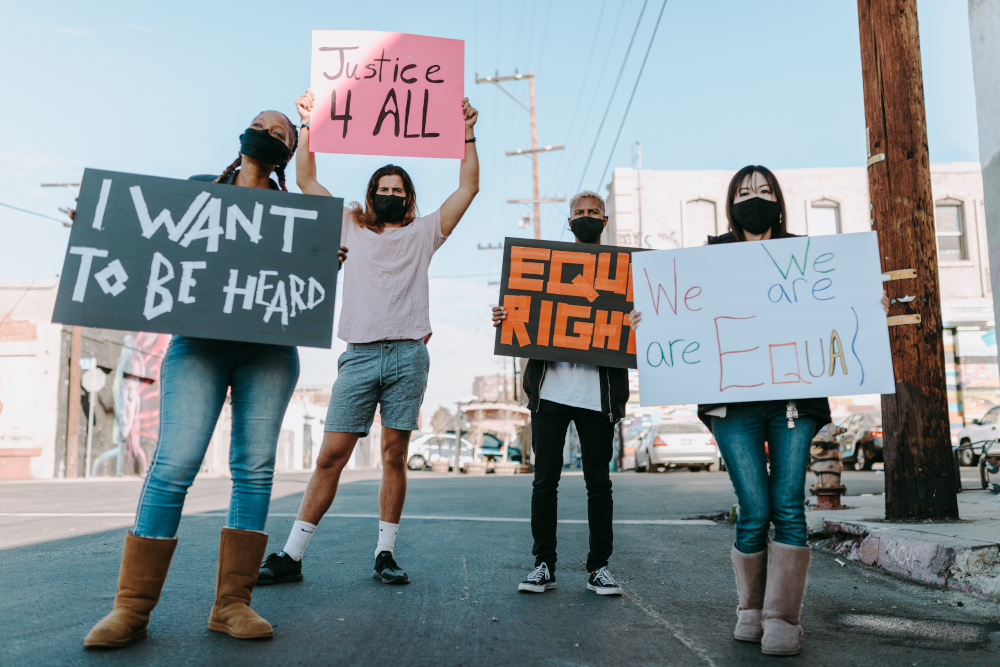OPINION by Peter Sandeman
Before the election, the Religious Discrimination Bill fiasco disappointed the conservative religious constituency, outraged the LGBITIQ+ community and their allies, and subsequently failed to become Morrison’s winning wedge.
The clumsy political tactics have simply aggravated tensions within our community with no easy path for their resolution.
So let me make some modest suggestions for the new government.
There is a genuine need for religious discrimination legislation. South Australia and New South Wales have insufficient protection against discrimination on the basis of religion.
Minority religious groups especially because of their dress codes such as Muslim women wearing Hijabs or Sikh men wearing turbans, need the same protections legislated for race, gender, and disability.
Remember the genesis of the “Religious Freedom Bill” was in the aftermath of the Same Sex Marriage plebiscite when conservative religious groups realised they no longer commanded majority opinion and were promised protection by the then Prime Minister.
Controversially the draft Bill privileged religious “Statements of Belief” from anti-discrimination legislation.
Statements of Belief were not to be allowed to be malicious, or threaten, intimidate, harass, or vilify (meaning to incite hatred) a person or group. These restrictions were however lesser than the Racial Discrimination Act which prohibits public comments which “offend, insult or humiliate“.
Faith-based schools, hospitals, aged care or other services are not simply part of a church
In our multicultural and multi-religious society I believe the right to freedom of speech should be included in a comprehensive Human Rights Act and set limitations equally without advantaging any one group over another. Religious statements of belief should therefore not be more privileged than secular belief statements.
The most controversial part of the Bill gave religious bodies providing services including education the power to give preference to persons of their faith.
It is clear that churches, synagogues, mosques and temples should have the positive right to appoint their ministers and officers from within their faith communities and organise themselves according to the tenets of their religion.
Under the International Covenant on Civil and Political Rights, we as individuals and in community with others, have the right of choice of religion or belief and the ability “to manifest his (our) religion or belief in worship, observance, practice and teaching”.
Faith-based schools, hospitals, aged care or other services are however, not simply part of a church when they are publicly funded to serve the wider community. When once such church-based activities were private acts of charity, these services are now very largely funded and regulated by the state.
There should be no religious test on our loving service to others as Jesus taught us in the parable of the Good Samaritan. Furthermore, public funding brings obligations to adhere to legal regulations and I believe this includes the obligation to accept everyone who is eligible and who wishes to access the services.
Publicly funded services should be open to all and should be safe, and inclusive to love and serve our neighbours as ourselves
The Citipointe Christian College tried to use enrolment contracts requiring students and parents sign up to their church’s doctrinal beliefs that homosexuality is a sin and to agree students would subscribe to traditional gender roles. Simply put the school’s leadership believed they could run these school as though it was part of their church and apply their doctrinal requirements to the students and their parents as though they were members of the church.
The International Covenant makes freedom of religion subject only to the limitations required “to protect public safety, order, health, or morals or the fundamental rights and freedoms of others”. The rights of members of the LGBTIQA+ communities to access publicly funded services are just as fundamental as those based on race, disability or cis gender. And, as argued above, not adhering to particular religious beliefs and practices should not exclude people from the care and support of church based services.
Faith based schools and other publicly funded services should be open to all and should be safe, and inclusive to love and serve our neighbours as ourselves with no religious test nor imposed gender stereotypes that effectively exclude students who do not fit the designated norms.
This issue of staffing is more contested but faith-based organisations, as distinct from churches, must determine which jobs require holding the fundamental beliefs, as distinct from the agreement to uphold the policies of the employer. What is yet to be fully delineated is the degree of detail in the doctrines that can be regarded as fundamental, and of course similar debates are occurring within the Anglican Church itself.
The new government should take the opportunity to confirm these changes and pass the religious discrimination and sex discrimination legislation as soon as possible.
Archdeacon Peter Sandeman is Canon for Social Justice in SA Anglican dioceses. Full disclosure: he is the twin of theothercheek’s blogger

